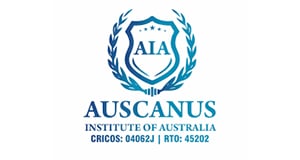Menu
Close
- Home
- RPL
- Health and Community Services Certifications via RPL
- Building and Construction Trade Certifications via RPL
- Hospitality and Commercial Cookery Certifications via RPL
- Real Estate Certifications via RPL
- TAE (Training and Assessment) Certifications via RPL
- Automotive Certifications via RPL
- Engineering Certifications via RPL
- Civil Construction Certifications via RPL
- Security Certifications via Enrolment and RPL
- Beauty and Hairdressing Certifications via RPL
- IT (Information Technology) Certifications via RPL
- Business and Finance Certifications via RPL
- Retail Services Certifications via RPL
- Sports and Fitness Certifications via RPL
- Horticulture and Land Management Certifications via RPL
- Supply Chain Operations (Logistics) Certifications via RPL
- RPL Qualifications
- CHC33021 – Certificate III in Individual Support
- CPP41419 – Certificate IV in Real Estate Practice
- TAE40122 – Certificate IV in Training and Assessment
- AUR31120 – Certificate III in Heavy Commercial Vehicle Mechanical Technology
- AUR40620 – Certificate IV in Automotive Electrical Technology
- AUR40720 – Certificate IV in Automotive Body Repair Technology
- MEM40119 – Certificate IV in Engineering
- RII60520 – Advanced Diploma of Civil Construction Design
- CPP40719 – Certificate IV in Security Management
- ICT60220 – Advanced Diploma of Information Technology
- TLI30321 – Certificate III in Supply Chain Operations
- FNS50222 – Diploma of Accounting
- BSB60120 – Advanced Diploma of Business
- BSB60420 – Advanced Diploma of Leadership and Management
- SIT50422 – Diploma of Hospitality Management
- SIT40521 – Certificate IV in Kitchen Management
- CHC43121 – Certificate IV in Disability Support
- CHC43015 – Certificate IV in Ageing Support
- CHC40321 Certificate IV in Child, Youth and Family Intervention
- CHC50121 – Diploma of Early Childhood Education and Care
- CHC43315 – Certificate IV in Mental Health
- CPC30320 – Certificate III in Concreting
- CPC40120 – Certificate IV in Building and Construction
- MSF30322 – Certificate III in Cabinet Making and Timber Technology
- CPC30620 – Certificate III in Painting and Decorating
- CPC31020 – Certificate III in Solid Plastering
- SIT30821 – Certificate III in Commercial Cookery
- SHB50121 – Diploma of Beauty Therapy
- Click here to view over 150+ Qualifications
Click here to view over 150+ Qualifications
- Admission
- Trade Licencing
- Other Services
- RPL Blogs
- Contact
- Home
- RPL
- Health and Community Services Certifications via RPL
- Building and Construction Trade Certifications via RPL
- Hospitality and Commercial Cookery Certifications via RPL
- Real Estate Certifications via RPL
- TAE (Training and Assessment) Certifications via RPL
- Automotive Certifications via RPL
- Engineering Certifications via RPL
- Civil Construction Certifications via RPL
- Security Certifications via Enrolment and RPL
- Beauty and Hairdressing Certifications via RPL
- IT (Information Technology) Certifications via RPL
- Business and Finance Certifications via RPL
- Retail Services Certifications via RPL
- Sports and Fitness Certifications via RPL
- Horticulture and Land Management Certifications via RPL
- Supply Chain Operations (Logistics) Certifications via RPL
- RPL Qualifications
- CHC33021 – Certificate III in Individual Support
- CPP41419 – Certificate IV in Real Estate Practice
- TAE40122 – Certificate IV in Training and Assessment
- AUR31120 – Certificate III in Heavy Commercial Vehicle Mechanical Technology
- AUR40620 – Certificate IV in Automotive Electrical Technology
- AUR40720 – Certificate IV in Automotive Body Repair Technology
- MEM40119 – Certificate IV in Engineering
- RII60520 – Advanced Diploma of Civil Construction Design
- CPP40719 – Certificate IV in Security Management
- ICT60220 – Advanced Diploma of Information Technology
- TLI30321 – Certificate III in Supply Chain Operations
- FNS50222 – Diploma of Accounting
- BSB60120 – Advanced Diploma of Business
- BSB60420 – Advanced Diploma of Leadership and Management
- SIT50422 – Diploma of Hospitality Management
- SIT40521 – Certificate IV in Kitchen Management
- CHC43121 – Certificate IV in Disability Support
- CHC43015 – Certificate IV in Ageing Support
- CHC40321 Certificate IV in Child, Youth and Family Intervention
- CHC50121 – Diploma of Early Childhood Education and Care
- CHC43315 – Certificate IV in Mental Health
- CPC30320 – Certificate III in Concreting
- CPC40120 – Certificate IV in Building and Construction
- MSF30322 – Certificate III in Cabinet Making and Timber Technology
- CPC30620 – Certificate III in Painting and Decorating
- CPC31020 – Certificate III in Solid Plastering
- SIT30821 – Certificate III in Commercial Cookery
- SHB50121 – Diploma of Beauty Therapy
- Click here to view over 150+ Qualifications
Click here to view over 150+ Qualifications
- Admission
- Trade Licencing
- Other Services
- RPL Blogs
- Contact











































